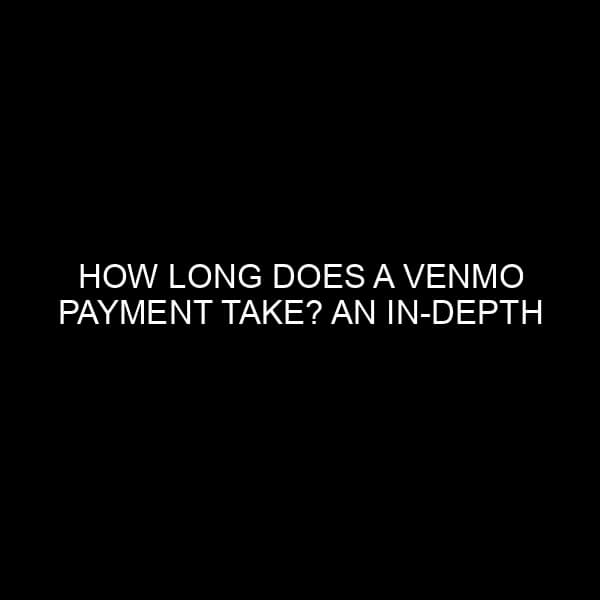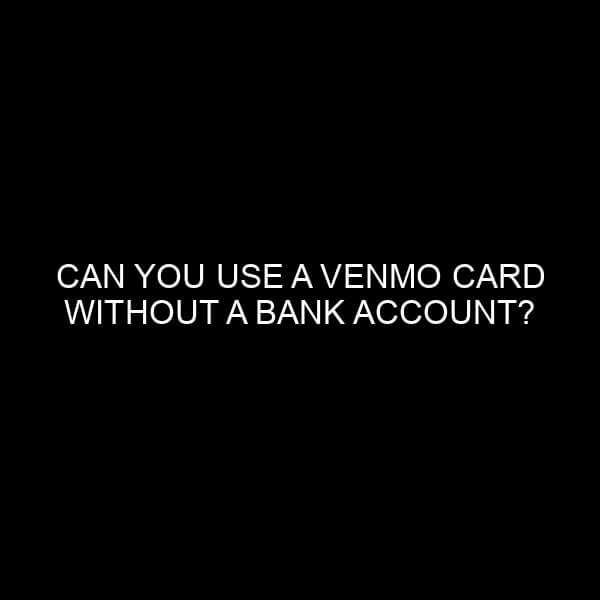Is It Safe to Give Someone Your Venmo Username and Email?
The age of digital banking and cashless transactions has given birth to numerous platforms that allow for easy and quick transfers of funds. Venmo, owned by PayPal, stands out as one of the most popular peer-to-peer payment platforms. While it’s incredibly convenient, concerns about safety and privacy often arise. One frequently asked question is whether it’s safe to share your Venmo username and email with others. In this comprehensive analysis, drawing from experience in the financial market and banking industry, we’ll break down the risks and best practices involved.
Understanding Venmo: The Basics
Before diving into the safety aspects, it’s important to understand the core functionality of Venmo. Essentially, Venmo is designed to be a social payment system. Friends can send and request money, split bills, and even attach notes or emojis to transactions. Like most payment platforms, Venmo requires user verification and authentication processes to ensure that funds are transferred securely.
The username and email associated with a Venmo account are essentially identifiers. They allow users to locate each other and initiate transactions. But, is handing out these identifiers akin to sharing your banking details? Let’s delve deeper.
Venmo Username: To Share or Not to Share?
Your Venmo username, or Venmo handle, is a public identifier. It’s similar to a Twitter or Instagram username. For someone to send you money or request funds, they’d need your username. In that sense, sharing your Venmo username is as harmless as giving out your social media handle.
However, there’s a caveat. Having your Venmo username alone doesn’t grant anyone access to your financial details or allow them to withdraw funds. But, if someone has malicious intent and gains access to more of your personal data, they might attempt to impersonate you or scam others using your name.
The Email Quandary: A Potential Security Risk?
Sharing your email is a slightly different ball game. Emails often serve as a gateway to multiple online accounts. A compromised email can be the first domino to fall in a sequence leading to identity theft or other cybercrimes.
If someone possesses your email and manages to guess or obtain your password, they could potentially access your Venmo account. Furthermore, cybercriminals can utilize phishing schemes, sending fake emails pretending to be from Venmo, to trick you into revealing sensitive information.
Best Practices for Venmo Safety
- Multi-factor Authentication (MFA): Use this feature to add an extra layer of security. With MFA, any attempt to log into your account from a new device will require additional verification, typically a code sent to your phone.
- Unique Password: Never reuse passwords across platforms. Use a strong, unique password for Venmo and consider using a password manager to keep track.
- Stay Informed: Regularly check Venmo’s security protocols and stay updated with their privacy policies.
- Limit Public Sharing: While it’s fine to share your Venmo username for transactions, avoid publicizing it unnecessarily. As for your email, be selective about who you share it with.
- Monitor Activity: Regularly check your transaction history for any suspicious activity. If you spot an unfamiliar transaction, report it immediately.
- Beware of Phishing: Always double-check emails claiming to be from Venmo, especially if they ask for personal details or direct you to click on external links.
Conclusion
Venmo, like any digital platform, comes with inherent risks. Sharing your username is relatively safe, provided you take precautions to ensure that your overall profile remains secure. Handing out your email, on the other hand, requires a bit more circumspection due to its pivotal role in digital identity.
In the ever-evolving landscape of digital finance, a mix of vigilance, education, and the use of available security measures can go a long way in ensuring your digital transactions remain both convenient and safe. As always, it’s crucial to prioritize your online safety and be discerning about who you share personal information with, regardless of the platform.






